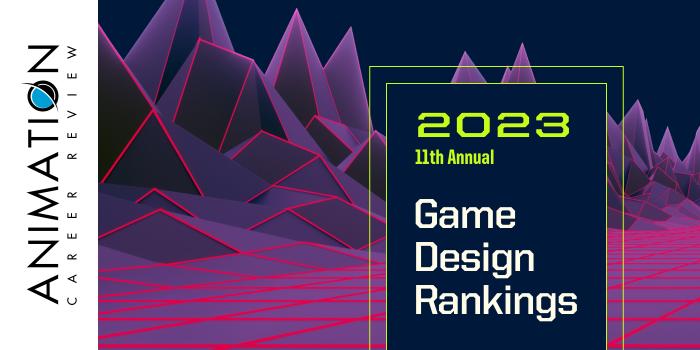
Turn your passion for drawing into a career in film and games with CG Spectrum. Courses include personalized mentorship from award-winning concept artists, career services, and access to a supportive community. Learn more.

| Ranking | School | City |
|---|---|---|
| 1 | University of Tulsa | Tulsa |
| 2 | Rogers State University | Claremore |
Our 2023 ranking of the top game design school programs in Oklahoma. For an explanation of the ranking criteria, click here.

The College of Engineering & Natural Sciences at University of Tulsa (TU) serves more than 1,800 students at the undergraduate and graduate levels. The College features small class sizes, a wide variety of majors, and a 91% job placement rate within six months of graduation. College of Engineering alumni have been hired at Amazon and Google, and some have started their own companies or studios.
TU’s College of Engineering & Natural Sciences houses Tandy School of Computer Science, home to the Computer Simulation and Gaming BS (BSCSG) and the Computer Simulation and Gaming Design Minor. Consisting of 18 credit hours of study, the Minor includes courses such as Game Assets: 3D Character Design or 3D Modeling and Animation, Game Design Concepts, Introduction to Programming and Problem-Solving, and Digital Video and Animation.
The BSCSG Program at University of Tulsa has two Options: Design or Development. The Computer Simulation and Gaming BS requires 124 credit hours including 25 hours in computer science, and 33 in computer simulation and gaming for the Design Option, and 37 hours in computer science, and 27 in Computer Simulation and Gaming for the Game Development Option.
Course examples across options include Exploration of Gaming Technology, Interaction Design, Game Production and Development, Data Structures, Game Engine Design, Exploration in Gaming Technology, Game Assets: 3D Modeling and Animation, Screenwriting, Programming and Problem Solving, and Computer Graphics. All BSCSG students will complete Senior Software Projects I-II.
The interdisciplinary Tandy BSCSG program is a member of the Unity Academic Alliance (UAA). This allows students to take the Unity Certified Associate exam at no cost. The exam leads to a certificate that is a recognized credential in the game development industry.
Other benefits of the Tandy BSCSG Program include opportunities to join student organizations such as Tulsa University Game Designers (TUGD) and Esports at the University of Tulsa, and participation in the annual Computer Simulation and Gaming Conference (CSGC).
In addition to careers in game design and development, graduates of the BSCSG Program at University of Tulsa are prepared for careers in digital production, special effects, animation, training and development, education, health, aerospace, and museum arts.
Chartered in 1894 as Henry Kendall College, University of Tulsa is an independent, nondenominational university that serves 3,705 students enrolled in 66 bachelor’s degree programs, 28 master’s degrees, and 15 doctoral programs. The degree programs at University of Tulsa are housed across six colleges and schools. University of Tulsa (TU) has been accredited by the Higher Learning Commission (HLC) since 1929.

Rogers State University (RSU) is home to a game design program that was the first of its kind in the State of Oklahoma. Established in 2005 and Housed in the School of Professional Studies/Department of Technology & Justice Studies, Business Information Technology BS with a Game Development Option (BS BTGD) is an interdisciplinary program that blends computer science, writing, math, physics, and art.
The Game Development Option consists of 42 credit hours of study. Course examples include Game Programming, Modeling and Simulation, Computer Graphic Programming, Modeling and Simulation, Mobile Application Development, Game Development, Programming I-II, Human-Computer Interface Development, Web Site Design & Development, 3D Modeling, Creative Writing for Popular Market, Computer Architecture, and the Game Development Seminar.
Opportunities for BS BTGD students include access to co-op programs, portfolio evaluation, the opportunity to develop their own software and write their own programs, performance exhibitions, internships, and study abroad experiences. Since 2006, dozens of students have completed internships and co-op programs with a variety of companies. Many of these companies hired these interns prior to graduation.
Graduates of the BTGD BS Program at Rogers State University are prepared to pursue positions in just about any area of game development. Examples include game animation, game programming, serious games, games creation for entertainment, software engineering, and multimedia art.
Founded in 1909, Rogers State University is a public, four-year institution that serves approximately 3,180 students across three campuses in Claremore, Bartlesville, and Pryor, Oklahoma. RSU offers more than 100 degree programs across two schools including the School of Arts & Sciences and the School of Professional Studies. Rogers State University is accredited by the Higher Learning Commission (HLC).